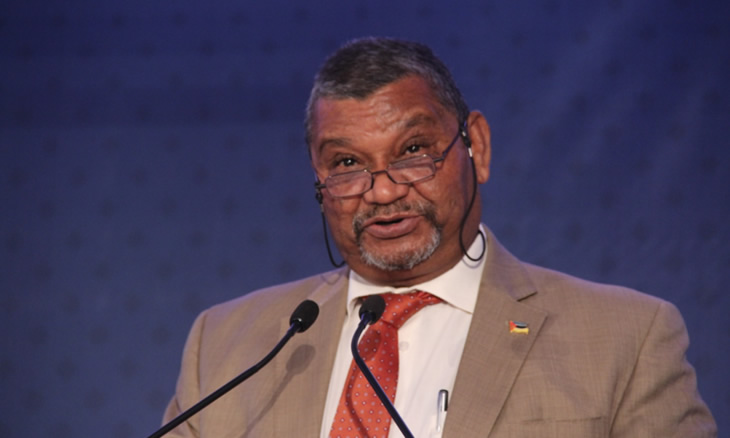Mozambique: Chapo claims commitment to “public-private partnership”
Mozambique: Government pledges to maintain tax incentives to domestic and foreign investment

File photo: TVM
Domestic and foreign investors will continue to receive tax incentives from the Mozambican government to move their projects forward and increase their contribution to economic growth.
Such was the pledge made on Friday by the Minister of Industry and Commerce, Ragendra de Sousa, speaking at the Scientific Journeys of the Mozambican Tax Authority (TA), held in Maputo under the motto “Implications of tax benefits on the mobilisation of state revenues”.
According to the minister, Mozambique is not the only country in the region and in the world which grants tax benefits as a strategy to encourage foreign investors to set up factories which create jobs for nationals. The citizens thereby employed contribute to the economy by paying taxes to the state, Ragendra de Sousa pointed out.
He also recalled that tax benefits offered to domestic and foreign companies are not permanent, but only for a certain period, citing the case of multinational Heineken, which will benefit from incentives for only three years.
The minister also advocated reflection on the national tax system, arguing that it too should aim to promote economic growth.
Responding, the International Monetary Fund (IMF) representative in Mozambique, Ari Aisen, said that this was an extremely important topic for the country, while warning that it could not still be viewed in an ideological way. Many countries have used industrial policies to help them develop, he observed.
“One must know exactly what is it that domestic and foreign investors need to make their investment decisions. Here comes the question of tax incentives as an instrument. Clearly, investors are looking at things other than incentives; private investors are also looking at the levels of economic stability and inflation in the country,” Aisen said.
The IMF representative further recalled that tax incentives can be linked to the issue of macro stability, given that there are benefits which can come from this environment and sustain economic growth and job creation. But, at the same time, there are also many other incentives which do not contribute to economic development and end up being a waste. because they abort growth and reduce the tax base.
“Macroeconomic stability implies fiscal stability. Fiscal stability, in turn, implies strong tax revenue, and in Mozambique today we have few taxpayers paying a lot. The most important [thing] is to widen the tax base. So, the question is how to support a transparent and well carried out process which will deliver results and at the same time widen the tax base so that revenue collection increases and the fiscal deficit stops growing,” he stressed.
The II Scientific Journeys of the Tax Authority of Mozambique were attended by staff of the institution, cooperation partners and university students, among other guests.













Leave a Reply
Be the First to Comment!
You must be logged in to post a comment.
You must be logged in to post a comment.